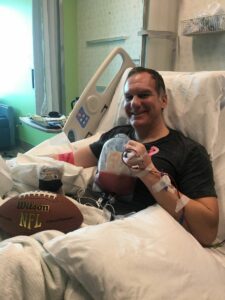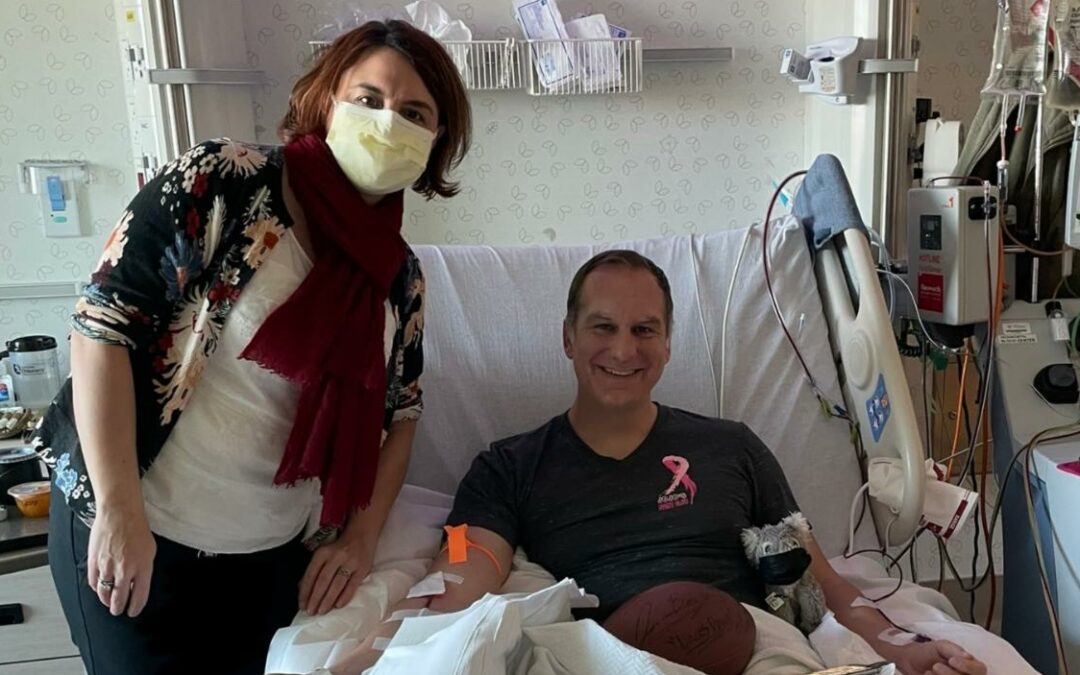I am very excited to report that in the month of February we successfully gave our first adult with a telomere biology disorder EXG34217, which is an infusion of their own bone marrow stem cells that have had telomere lengthening study therapy at Cincinnati Children’s Hospital Medical Center.
This is a study investigating cellular therapy to lengthen telomeres in bone marrow stem cells for adults with telomere biology disorders with mild or moderate bone marrow failure. In this study, bone marrow stem cells are collected from adults with telomere biology disorders and these stem cells are then processed to elongate their telomeres to give them a potential survival advantage. The cells are manufactured on site at Cincinnati Children’s Hospital using EXG-001 (a virus that expresses a human protein that normally helps lengthen human telomeres during specific phases of development). After exposure to EXG-001 the study stem cells (now called EXG34217) are returned to the patient through an infusion into their vein. These stem cells with longer telomeres may have a survival advantage that could help them work better and may improve the bone marrow and blood count problems associated with the telomere biology disorder. There is no chemotherapy treatment prior to the cell infusion. In this stage the study is primarily looking at the safety and tolerability of EXG34217.

Although this is our first infusion of the modified stem cells we are already learning from this study. When we originally designed the study, we knew it might be difficult to collect bone marrow stem cells from people with telomere biology disorders. We planned to start using the medications and methods we typically reserve for other patient groups with difficult to collect stem cells, like other bone marrow failure syndromes such as Fanconi anemia or patients with Sickle Cell disease. Even with this as our starting point we learned that we needed to make additional adjustments and use newer approaches developed for our most difficult to collect patients. With these changes and a very patient and persistent study participant we were able to successfully collect enough bone marrow stem cells to proceed with study treatment and reinfuse the cells! This knowledge will be helpful both for this study and any future studies using stem cells collected from patients with telomere biology disorders.
The study is currently enrolling interested adults with telomere biology disorders. The specific eligibility includes age greater than 18 years, very short telomeres/genetic diagnosis of telomere biology disorder/dyskeratosis congenita as well as having mild or moderate bone marrow failure but not severe bone marrow failure. Additionally, there can be no concern for myelodysplasia or active cancer/chemotherapy or very recent androgen or GCSF therapy within the last several months. Travel to Cincinnati is required for study participation and covered by the study. Treatment and follow-up is for 12 months after infusion, some of which may be done locally. This is an industry study sponsored by Elixirgen Therapeutics. For more information please contact our study research nurse Monica Trapp (monica.trapp@cchmc.org / 513-803-8574).
Thank you to the study participants and the telomere biology community for your support for our work.
